If you own a car, you probably know that an oil leak is not something you want to ignore. However, not all oil leaks are created equal.
In this post, we’ll discuss what you need to know about an oil leak but not excessive.
An oil leak but not excessive can be caused by a variety of things, including a loose or damaged oil filter, a worn or damaged gasket, a damaged oil pan, or a damaged valve cover. It’s important to have a professional mechanic diagnose and repair the issue to prevent it from becoming a larger problem.
Table of contents
What is an Oil Leak but Not Excessive?

If you notice a small amount of oil leaking from your vehicle, it could be an indication of a more serious issue.
Potential causes of a non-excessive oil leak include a damaged oil pan, a failed oil seal, or an improperly sealed rocker cover. It’s important to address these issues promptly to prevent further damage to your vehicle’s engine.
If you’ve received a warning stating that you have an oil leak but it’s not causing a concern, it means that there is a minor oil leak somewhere in your vehicle.
While it may not be immediately alarming, any sort of mot oil leak but not excessive should be taken seriously.
If left unaddressed, it could lead to hazardous conditions on the road for other drivers as well as potentially expensive engine damage.
What Does Oil Leak but Not Excessive Means on Mot?
Certainly! When an MOT test is conducted on a vehicle, the examiner checks various parts to make sure they meet safety and environmental standards. If the examiner says there is an “oil leak but not excessive,” it means they have found evidence of a small amount of oil leaking from the vehicle.
However, the leak is not considered to be a big problem that would fail the MOT test or pose an immediate danger.
Although the mot oil leak but not excessive is not severe, it is still important to address it and get it fixed as soon as possible.
Even small oil leaks can become worse over time and cause bigger issues, such as engine problems or pollution.
Taking care of regular maintenance and fixing any leaks promptly will help keep your vehicle running well and lasting longer.
How can you tell if you have an oil leak but not excessive?
One of the most common signs of an mot oil leak but not excessive is a puddle of oil underneath your car. You may also notice a burning smell or smoke coming from your engine, or your oil pressure light may come on.
If you suspect you have an oil leak, it’s important to have it checked out by a professional mechanic.
What should you do if you have an oil leak, but not excessive?
If you have an oil leak, but not excessive, it’s important to have it repaired as soon as possible to prevent it from becoming a larger problem.
Take your car to a professional mechanic who can diagnose the issue and provide a quote for the repair.
In the meantime, be sure to check your oil levels regularly and top off as needed to prevent any damage to your engine.
A small amount of oil seeping from the engine:
A small amount of oil seeping from the engine is not something to ignore. It’s important to address the issue promptly by taking your car to a professional mechanic, who can diagnose and repair the problem.
Regular maintenance, such as oil changes and inspections, can help prevent oil leaks from occurring in the first place.
Checking under your car for any signs of leaks and monitoring your engine for warning signs can also help catch any issues early on.
Remember, an oil leak but not excessive may seem like a minor issue at first, but it could quickly escalate into a more serious problem if left untreated.
Oil Leak, but Not Excessive Repair Cost:
| Description | Severity | Repair | Estimated Cost |
|---|---|---|---|
| Oil leak from the valve cover gasket | Minor | Repair the valve cover gasket | $100 – $200 |
| Oil leak from the camshaft seal | Minor | Replace the camshaft seal | $50 – $150 |
| Oil leak from the timing chain cover gasket | Minor | Replace the timing chain cover gasket | $100 – $200 |
| Oil leak from the oil pan gasket | Moderate | Replace the oil pan gasket | $200 – $400 |
| Oil leak from the rear main seal | Moderate | Replace the rear main seal | $300 – $500 |
Here Is an Cheapest Oil Leak but Not Excessive Fix:
Here is a step by step guide with images and video to fix this oil leakages:
Step 1: Clean the area with brake cleaner, link given below:
- Residue Free
- Specially Formulated
- Increase Traction
- Non-Chlorinated
- Additional Use

Step 2: Spray the brake cleaner on the area:

Step 3: Then clean it using Brush while spraying:

Step 4: Implement the silicon link given below:
- High Performance Formula
- Vibration Resistant
- Long-Lasting Durable Silicone Gasket
- Multi-Purpose Gasket Material
- Suggested Applications

Finally give it time hurrah you have fixed it, You can also watch this video to see the full video guide to implement this and for better understandings:
Common causes of Oil Leak but Not Excessive:
Common Causes of Oil Leak but Not Excessive: As you can see the oil leak in the below image:

1. Loose or Damaged Oil Filter:
A loose or damaged oil filter can cause oil to leak out of your vehicle. It’s important to check your oil filter regularly and replace it if it’s loose or damaged.
The oil filter is responsible for removing contaminants from the oil before it circulates through your engine. If it becomes loose or damaged, it can cause oil to leak out of your vehicle.
This can be a serious issue as it can lead to engine damage and potentially hazardous conditions on the road.
2. Old or Worn Gaskets:
Gaskets are used to seal different components of your engine, and they can wear out over time. If your gaskets are old or worn, they can cause oil leaks.
Common types of gaskets that can cause oil leak, but not excessive engine 8.4 1 a include valve cover gaskets, oil pan gaskets, and head gaskets.
These gaskets are responsible for sealing different parts of your engine to prevent oil from leaking out.
Over time, they can become brittle or damaged, which can cause oil to seep out. Regular maintenance, such as replacing gaskets during engine repairs, can help prevent this issue from occurring.
3. Oil Pan Damage:
Your oil pan is located at the bottom of your engine and can become damaged over time. If your oil pan is damaged, it can cause oil to leak out of your vehicle.
Damage to the oil pan can occur due to a number of reasons, such as hitting a curb or driving over a rough terrain.
This can cause cracks or holes in the oil pan, which can lead to oil leak, but not excessive engine 8.4 1 a.
Regular maintenance, such as checking for signs of damage during oil changes or inspections, can help prevent this issue from occurring.
4. Valve Cover Gasket Leak:
The valve cover gasket is another common culprit of oil leaks in vehicles. This gasket is responsible for sealing the valve cover to the engine, which prevents oil from leaking out.
However, over time, the gasket can become damaged or worn, which can cause oil to seep out. This can lead to decreased engine performance and potential damage if left unaddressed.
Regular maintenance, such as checking for signs of wear and tear during inspections or replacing the gasket during engine repairs, can help prevent this issue from occurring.
5. Overfilling the Oil:
Overfilling your engine with oil can cause a variety of issues, including leakage. When the oil level is too high, it can cause pressure to build up in the engine, which can lead to oil leak, but not excessive on mot.
This can also cause damage to other parts of the engine, such as the seals and gaskets, which can exacerbate the issue.
It’s important to ensure that you’re adding the correct amount of oil during your regular maintenance checks and to never overfill your engine.
If you do accidentally overfill your engine, it’s important to have it drained and refilled by a professional mechanic to prevent any further damage.
Regular maintenance and careful attention to your oil levels can help prevent this issue from occurring.
If you notice any signs of an oil leak, but not excessive on mot, it’s important to have it checked out by a professional mechanic to prevent further damage to your vehicle.
Remember to always keep an eye on your oil levels and check for any signs of leaks. If you notice any issues, it’s important to have them addressed by a professional mechanic.
I would highly recommend you to watch this video to fix the oil leak:
Oil Leak, but Not Excessive (8.4.1 (a) (i)):

An oil leak, but not excessive (8.4.1 (a) (i)) is an advisory item on an MOT test in the United Kingdom. This means that the oil leak is not serious enough to cause the vehicle to fail the test, but it is something that should be monitored and repaired as soon as possible.
The Oil Leak, but Not Excessive (8.4.1 (a) (i)) could be caused by a number of things, such as a loose gasket, a cracked seal, or a worn part. It is important to have the leak repaired as soon as possible to prevent further damage to the engine.
If you are unsure about the severity of the oil leak but not excessive (8.4.1 (a) (i)), you should take your vehicle to a qualified mechanic to have it inspected.
Front Oil Leak but Not Excessive:
A front oil leak, even if it’s not excessive, is still a cause for concern and should be addressed as soon as possible. While it may not be severe enough to cause your vehicle to fail an MOT test, it can still lead to engine damage and other problems if left untreated.
Here are some of the potential consequences of a Front Oil Leak but Not Excessive:
To address a front oil leak, it’s important to identify the source of the leak first. Common causes of front oil leaks include:
Once you’ve identified the source of the leak, you can take steps to repair it. Depending on the severity of the oil leak but not excessive (8.4.1 (a) (i)), you may be able to fix it yourself with a gasket sealant or gasket replacement kit.
However, if the leak is more complex, it’s best to take your vehicle to a qualified mechanic.
Here are some additional tips for preventing front oil leaks:
By following these tips, you can help to protect your engine from front oil leak, but not excessive (8.4.1 (a) (i)) and keep your vehicle running smoothly.
How to Detect an Oil Leak but Not Excessive?

Check the oil level regularly:
To detect an oil leak, but not excessive (8.4.1 (a) (i)), it’s important to check your oil level regularly.
This can be done by locating the dipstick under your hood and checking the oil level with the engine turned off and on a flat surface.
If you notice that the oil level is lower than usual or if there are signs of oil around the engine or underneath your vehicle, it could be a sign of a leak.
You should also check for any unusual smells or smoke coming from your engine as these can also indicate an front oil leak, but not excessive (8.4.1 (a) (i)).
It’s important to address any signs of an oil leak immediately to prevent further damage to your vehicle.
Regular maintenance checks and inspections by a professional mechanic can help prevent and detect any potential issues before they become more serious problems.
Look for oil spots on your driveway or garage:
Another way to detect an oil leak, but not excessive (8.4.1 (a) (i)) is by looking for oil spots on your driveway or garage. If you notice any dark, circular spots underneath your vehicle, it could be a sign of an oil leak.
The spots may also have a greasy texture and emit a burning smell when touched.
It’s important to address any signs of an oil leak immediately to prevent further damage to your vehicle and avoid potential safety hazards on the road.
Regular maintenance checks and inspections by a professional mechanic can help prevent and detect any potential issues before they become more serious problems.
Don’t ignore any signs of an oil leak and always take your vehicle in for repairs as soon as possible to keep it running smoothly and safely on the road.
Smell of burnt oil:
If you notice a strong smell of burnt oil coming from your engine, it could be a sign of an oil leak.
This can occur when the leaking oil comes into contact with hot engine parts, causing it to burn and emit a distinct odor.
In addition to the smell, you may also notice smoke coming from your engine or exhaust system.
It’s important to address any signs of an oil leak immediately to prevent further damage to your vehicle and avoid potential safety hazards on the road.
Regular maintenance checks and inspections by a professional mechanic can help prevent and detect any potential issues before they become more serious problems.
Don’t ignore any signs of an oil leak and always take your vehicle in for repairs as soon as possible to keep it running smoothly and safely on the road.
Is a Non Excessive Oil Leak Bad?
If you notice an oil leak in your vehicle, it’s essential to address it right away. Even if the leak appears to be minor and non-excessive, it’s not something you should ignore.
While it may not seem like a significant issue, a leak can lead to serious problems down the line, including engine failure.
The oil in your engine is crucial to its proper functioning, and a leak can result in a lack of lubrication and overheating. This can cause extensive damage, which can be expensive to repair.
Additionally, an oil leak can cause environmental harm, as the oil can seep into the ground and contaminate water sources.
So, while it may be tempting to ignore a small leak, it’s always a bad idea. Your best bet is to address it quickly and have it repaired by a professional mechanic to prevent bigger problems.
Why is my oil leaking out of nowhere?
One of the most common causes of oil leaks is the over-tightening or under-tightening of the oil pan gasket or valve cover gasket during a previous maintenance check.
It’s important to ensure the proper torque specifications are followed during these checks to prevent leaks from occurring.
Over time, the gaskets can become worn or damaged, causing oil to leak out. Another common cause of oil leaks is a damaged or worn-out oil seal, which can occur due to high mileage or exposure to extreme temperatures.
In some cases, oil leaks can also be caused by a cracked or damaged engine block, although this is less common.
Regardless of the cause, it’s essential to address any oil leaks as soon as possible to prevent further damage to your vehicle and avoid potential safety hazards on the road.
Why is my engine leaking oil but no leak?
If you’re noticing that your engine is losing oil, but you can’t find any visible leaks, it could be due to two possible reasons.
- Firstly, you may have sprung a leak that is not visible to the naked eye. In such cases, the oil may be dripping onto a hot exhaust pipe or other parts of the engine, causing it to evaporate before it can form a visible pool or spot.
- Secondly, it’s possible that your engine is burning the oil away, which can happen due to a variety of reasons such as worn-out piston rings or valve guides.
- When this occurs, the oil is burned along with the fuel inside the engine, causing blue smoke to emit from the exhaust.
- It’s essential to address any oil loss issues immediately, as it can lead to serious engine damage and safety hazards on the road.
Where are the 3 most common places for an oil leak to be found?
If you own a vehicle, it is important to know where the most common places for an oil leak are found. This knowledge can help you identify potential problems early on and avoid costly repairs down the line.
The oil filter, valve cover gasket, and oil pan are among the top culprits of oil leaks. The oil filter is responsible for removing impurities from the oil, but over time it can become clogged and fail, causing an oil leak.
The valve cover gasket is located on the top of the engine and can become worn or damaged, leading to oil seepage. The oil pan sits at the bottom of the engine and can develop cracks or holes, resulting in oil leakage.
It is important to check these areas regularly for signs of leaks, such as oil spots on the ground or low oil levels.
If you notice any of these signs, it is recommended that you take your vehicle to a mechanic immediately to prevent further damage.
Is an Oil Leak an Mot Failure?
An oil leak may or may not be an MOT failure, depending on the severity of the leak. Minor oil leaks are likely to be ignored by testers, but more serious leaks could result in a major defect and a fail.
What the MOT tester will be looking for:
If you have an oil leak, it is important to get it fixed as soon as possible. Not only will it improve the performance of your car, but it will also help to prevent it from failing its MOT.
Here are some tips for preventing oil leaks:
Conclusion and final thoughts 💭
An oil leak, no matter how small or non-excessive it may seem, is never a good sign. Ignoring it can lead to serious engine damage and environmental harm.
The most common causes of oil leaks are worn-out or damaged gaskets and seals, which can be easily repaired by a professional mechanic.
Regular maintenance checks and inspections can help prevent and detect any potential issues before they become more serious problems.
It’s also important to know where the most common places for an oil leak are found in your vehicle to identify potential problems early on.
Remember, addressing any oil leaks as soon as possible will not only keep your vehicle running smoothly but also ensure safety on the road and protect the environment.
Latest Posts:
- Can WD-40 Remove Scratches on Cars? (Hint: Yes, but…)
- Can You Use a Drill to Polish Your Car? (We Tried it Out!)
- Should You Cover Car Scratches With Stickers? (REVEALED!)
- Buick Service Stabilitrak: (Causes & 100% Guaranteed Fix!)
- Common Holden Trax Problems (Causes & 100% Proven Fixes!)
- Jeep Commander Transmission Over Temp: (Guaranteed Fix!)

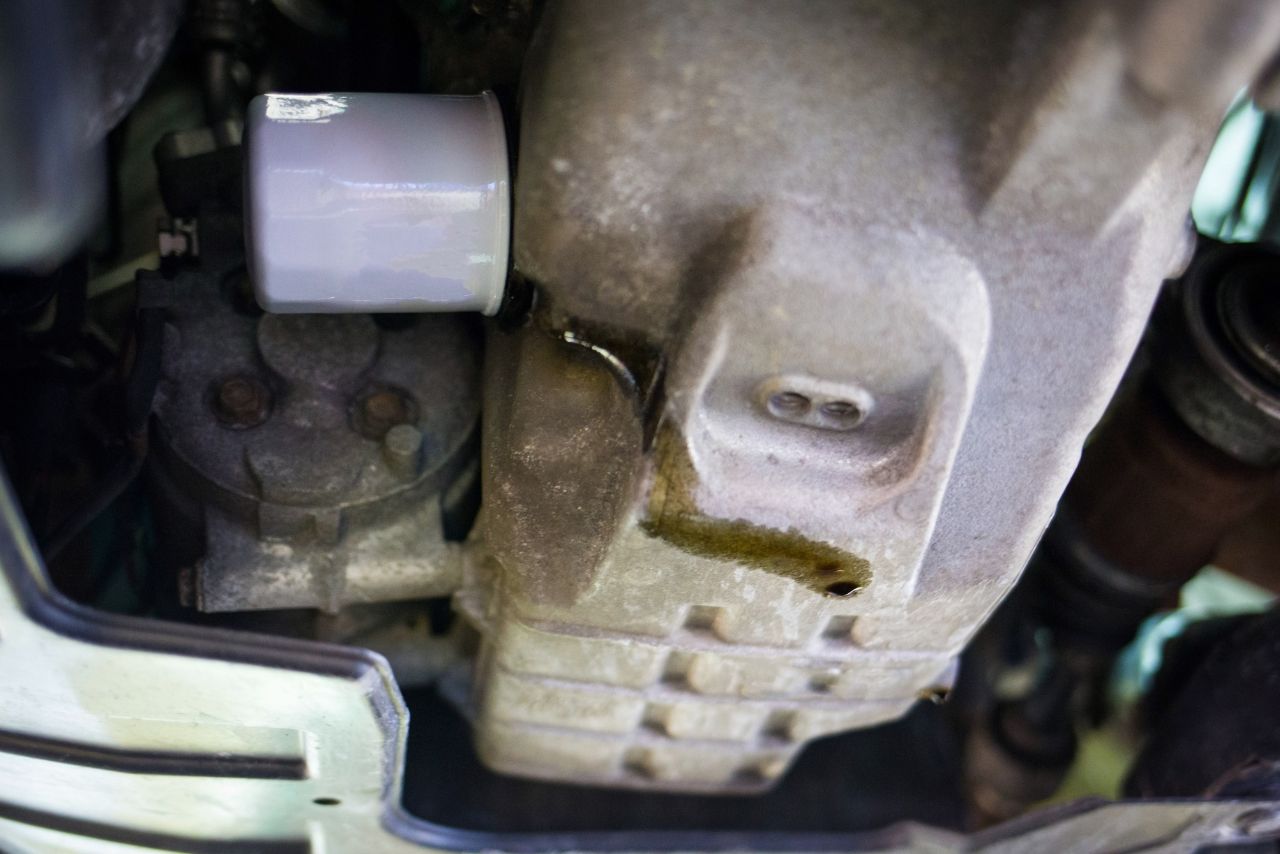
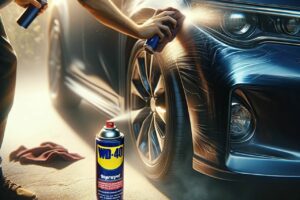




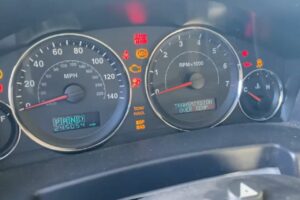
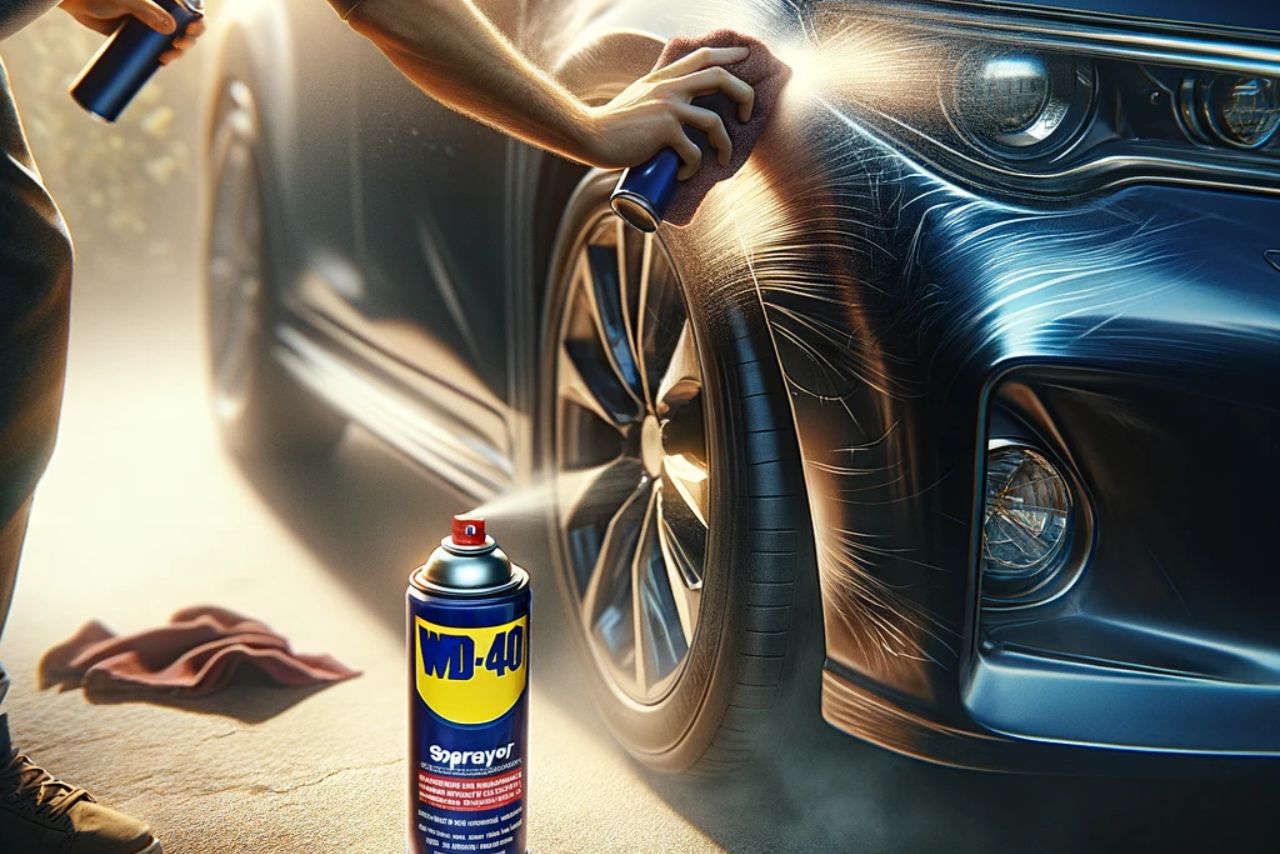
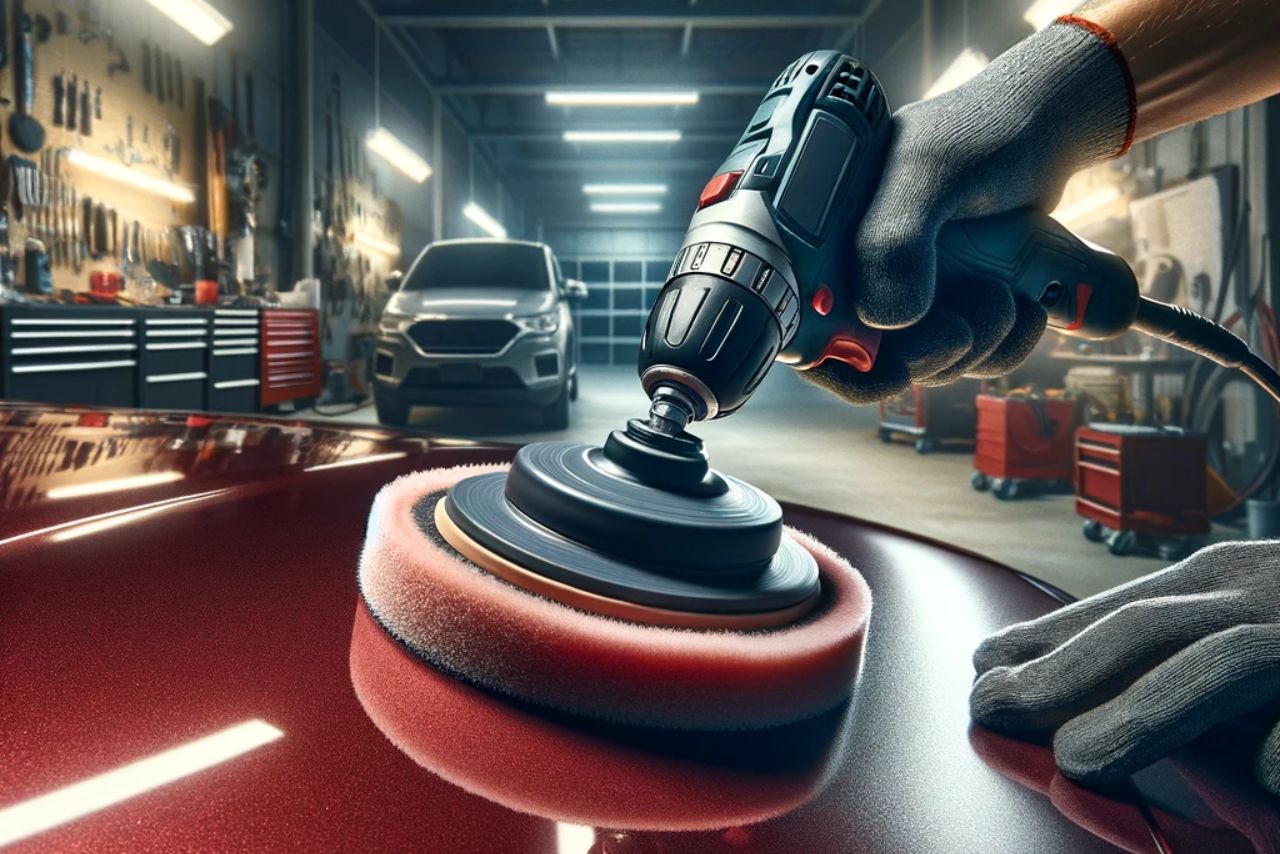

Leave a Reply